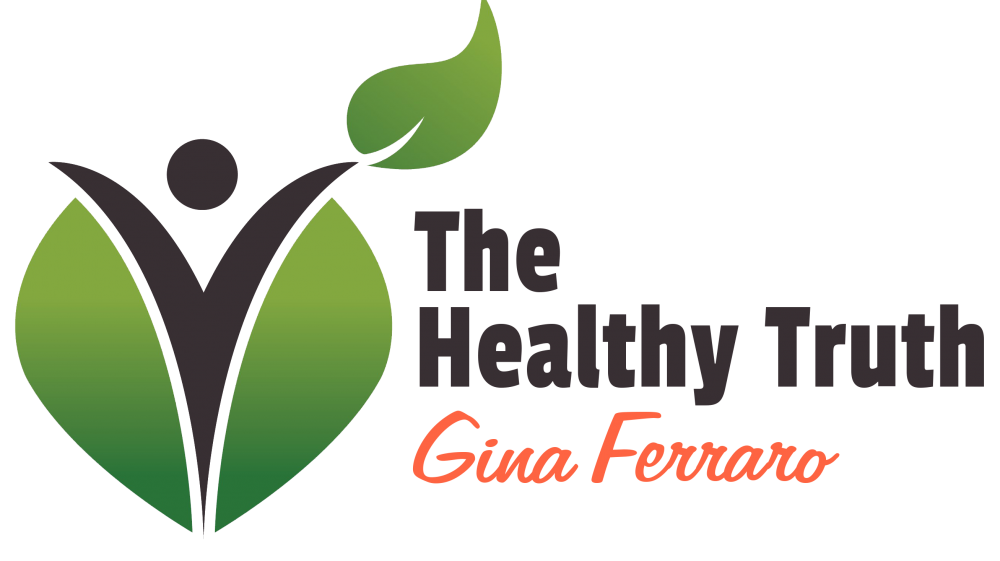by Gina Ferraro | Sep 21, 2014 | Diet, Disease prevention, Health, Nutrition, Weight loss, Wellness

When we set upon another weight-loss journey our primary focus is generally JUST that…..”weight loss”. Unfortunately it is often at the expense of our health. We become so tunnel-visioned that we neglect areas that are screaming for our attention, and then we wonder why we feel lethargic and have no energy.
It has been found through research that even when NOT focusing on a weight loss diet, the majority of the population are deficient in four major things:
* Water
* Protein
* Vitamins and minerals
* Omega 3 FFA’s
As a nutrition coach my first point of attention is to identify my client’s nutritional deficiencies, then work with them towards addressing each one at a time to rectify the body’s imbalance. What is commonly found as a result is that the client achieves their goals more successfully than if they just generally deprived themselves of food because the body cannot function effectively when it is starved of nutrients, and this transfers to weight loss capabilities.
Now those who know me know that I do not easily recommend supplementations. The main reason for this is that people often use supplements as a “magical quick fix” to their problems and they don’t focus on trying to get natural healthy foods into their body. BUT….we can’t always get everything we need through dietary means alone and as long as you are using good food to nourish the body some supplementations on TOP of that can assist.
The major supplements that I would recommend in addition to a healthy dietary intake is vitamin and mineral supplements (the superior the form the better) and Omega 3 fish oil liquid (liquid is better than capsules because it is easier to get higher doses in this form, and attempt to find a purer oil that is high in EPA and DHA). You will need to do your research to determine which supplement brand to use as there are good and bad just like with everything else.
So before you go on a diet to lose your excess kilos, first ask yourself what you are nutritionally deficient in and focus on fixing THAT problem first. You just may be pleasantly surprised to find that your weight loss goals are easier to achieve.
by Gina Ferraro | Aug 10, 2014 | Diet, Health, Nutrition, Weight loss, Wellness

Australia, America, and the UK spend billions of dollars on nutritional products with the most popular being protein powders. They are purported to be the magical ingredient for building muscle mass and also assist with fat loss and weight loss. Health and fitness practitioners abundantly promote its usage but is this another out of control money-making fad or is there truth to all the highly-publicised claims?
Many protein powders unfortunately contain MSG, as well as a multitude of additives, sweeteners, and other chemicals! So it is not really the health food it is often thought to be.
MSG EXPLAINED
MSG (monosodium glutamate) is a flavor enhancer and preservative often added to processed food, and yes, protein powder is a processed food! MSG is the salt form of the amino acid glutamic acid. Glutamic acid (and not MSG) is found naturally in our bodies and in food protein sources. MSG is made when a salt combines with a hydrolysed glutamic acid molecule, which occurs during many food manufacturing processes.
Unfortunately, many protein powders contain hidden sources of MSG. How do companies get away with not listing MSG on the ingredients label? If an ingredient is less than 99% pure glutamate, then the FDA does not require the manufacturers to list MSG on the label! If MSG is produced as a result of protein hydrolysis or a byproduct of protein processing, the FDA does not require MSG to appear on the label. Moreover, a product labeled “No MSG” may still have MSG or free glutamic acid as a result of protein processing, as long as pure MSG was not added. The truth is that protein-hydrolysis-based glutamates or MSG are found in just about every highly processed food. Even “health foods.”
Click on the following link to see a full list of Hidden names for MSG and free glutamic acid http://www.truthinlabeling.org/hiddensources.html
If you feel you cannot live without your protein powder (I come from a weight-training background so I know protein powders are like oxygen to most body builders) then look for one that is ‘undenatured’ or ‘cold processed’. Most protein powders are exposed to extreme heat when they are being processed. Protein powders contain the normally healthy glutamic acid, which becomes a problem when it is exposed to heat. When protein powder is manufactured, it is generally exposed to extreme heat, which converts glutamic acid into free glutamic acid or MSG.
Look at the product’s ingredients list. Do a bit of research and check to identify what it actually contains. Many have neurotoxins and other undesirable additives. If it has a long ingredients list full of confusing names then avoid it! Also try to find a protein powder where the milk comes from organic grass-fed animals. Grass-fed milk has an impressive 5X more conjugated linoleic fatty acid and contains more vitamins than its grain-fed competitor. Lastly, a protein “concentrate” is healthier than a protein “isolate” which are devoid of many nutrients.
I personally do not recommend taking protein powders and have never done so myself, BUT if you must consume them then be selective and do your homework. I have researched a few and the following “seem” to be healthier options for those who cannot do without them: One World Whey, Upgraded Whey Protein Powder, Mercola Pure Power Protein, and Miracle Whey. Unfortunately, many protein powders contain forms of soy and whey protein that will always contain processed free glutamic acid so it can be difficult to find a protein powder that does not potentially contain them. So focus on one that has lower concentrations of glutamates.
“At the end of the day protein supplements (including bars and drinks) are a processed food product and many of the ridiculous claims made on the ones with a whole load of extras added have no scientific backing. Often a glass of milk would be just as good.” Dr Joanna McMillan – Dietitian
Try not to be conned by products where the marketing is ahead of the research. My tip? Eat your protein from proper food sources and keep them as natural as possible.
by Gina Ferraro | Jul 20, 2014 | Diet, Exercise, Health, Nutrition, Weight loss, Wellness

Everywhere you turn there is some “expert” promoting another magical diet that will help shed the excess kilos lightning fast, or else they are raving about a miracle super food that can cure any disease known to man! When we are desperate to achieve our goals it is easy to be hypnotized by these marketing magicians and their fantastic claims. So….which diet IS best?
There are countless diets all purporting to be the “best”. Paleo, Atkins, Vegetarian, Vegan, 5:2……….. How do we mere mortals know which one to choose? The promoters use scientific terms and claim that “research has proven………” whilst further supporting their recommendations with numerous testimonials of people who have tried their method and loved the results! Before and after shots are used to lure us in because if others have done it…then so can we! But it’s really not rocket science. The basics are quite simple. When someone puts in less calories than the body uses, the net result is usually weight loss! If you add resistance training to the equation then the body will reshape and the results can be amazing. Individual results are varied due to a wide variety of factors including genetics, hormones, sex, age, health, and physical activity.
If we look back in history we will see that tribes around the world have all flourished on very different diets. Inuits have a base diet of fish, and jungle tribes have a base diet of plants. Some have high fat diets whilst others have low. Some higher in carbs, some higher in protein. To think that there is only ONE right diet for every person on the planet or there is ONE magical super food that will cure all our health problems is just ludicrous! The one thing they all have in common is their diets are “natural” and free of processing and high concentrated sugars. I am a nutritional “atheist” and I believe that the diet best for YOU is the diet that WORKS for you. We have to be our own guinea pigs and experiment with different foods to see the ones that work for us. Variety IS important with food to ensure we get a good range of not only macro but micro nutrients as well (vitamins and minerals). How often we eat should be determined by our bodies and activities and not on misinterpreted scientific data.
It is important to note however that whatever you DO decide to do with your eating, gradual alterations are best for making lifetime behaviour changes. The way you eat (i.e. your diet) shouldn’t have an end date. It should be something you attempt to achieve every day for the rest of your life. Stop making it more complicated than it has to be.
by Gina Ferraro | Jun 22, 2014 | Diet, Exercise, Health, Nutrition, Weight loss, Wellness

Ok so you have decided to get healthy and/or lose weight. You purchase new workout clothes, restock your fridge and pantry, possibly join a gym and may have even bought some exercise equipment. You are going to finally make this happen! Woohoo for you! But your good intentions may hit a brick wall down the road. You may feel tired so miss an exercise session (which turns into two, then twenty). Food temptations linger to lure you off your path and you convince yourself that “one won’t hurt” or “I’ll burn it off tomorrow”. And after a short while when you don’t see any results you just think “what the hell – I give up!” Sound familiar? So how do we keep motivated to do the right thing? Well it is different for everyone and you will need to try a few different things to find which motivational strategy/ies works for you. Here are a few ideas that I have found quite successful for my clients:
1. Visualisation.
SEE your goal self. Put up a picture of what you want to look like and have it where it constantly reminds you what you want to achieve.
2. Practice positive self-talk.
Avoid putting yourself down and saying condescending comments to yourself. When we are in this state of mind it is difficult to practice positive habits. When we feel emotional and low we often adopt behaviours that are self-sabotaging. Identify when you are saying something negative – stop – and replace it with a positive statement about yourself instead.
3. Use affirmations.
Affirmations are powerful positive statements that can guide your behaviours. It can be difficult to buy a chocolate bar when you are consistently telling yourself “I eat healthy wholesome foods”. Affirmations can reprogram your thoughts.
4. Surround yourself with like-minded people.
It is difficult to stay focused on health when everyone around you is doing the exact opposite thing to you. Find a group or person who has similar health interests and motivate one another to do the right thing.
5. Be accountable to someone.
This could be the same person/people in the above point, or it can be a partner, family member, friend, or even a personal trainer. Let this person know your goals and what you are trying to achieve. You are less likely to do the wrong thing if you have to tell them you have done so.
6. Make your health a priority.
This is MY main motivational strategy that I use to keep myself on track. As I have a history of weight gain and injury I remind myself how horrible it was when I was overweight and unhealthy. I would rather endure a few hours pain a week to exercise than suffer the life I had when I was unhealthy. I see my exercise sessions as “not negotiable” and view them as part of my normal day whether I want to do it or not. I see it the same as my job. I HAVE to do it. It is all about changing your mindset. Don’t give yourself an option.
These are just a few strategies that I have found extremely effective. Try one and see if it works for you. You CAN achieve amazing things if you really want to.
by Gina Ferraro | May 28, 2014 | Diet, Exercise, Health, Nutrition, Stress management, Weight loss, Wellness

Stressors are inevitable. Life can produce the never-ending pressure of chronic stress. When this happens the body constantly releases the stress hormones of adrenaline, noradrenaline and cortisol.
If this is not controlled, chronic stress can lead to diminished health, disease, and can eventually kill us.
Stress can manifest itself by increasing the risk/s of:
* Obesity/weight gain
* Insulin resistance/type II diabetes
* Hypertension
* Hypercholesterolemia (high cholesterol)
* Cardiovascular disease
* Chronic pain
* Depression and anxiety disorders
* Eating disorders (both under AND overeating)
* Drug & alcohol abuse (including smoking).
Stress tolerance has an important influence on your ability to sustain the quality of your life. If you cannot tolerate stress, then you cannot enjoy a high quality of life. One of the most important factors for achieving this is the ability to choose coping behaviours where you can influence the stressful situation by keeping calm and maintaining control.
Most people don’t realise that there is a strong relationship between stress management and impulse control. When you control your impulses, you are reducing your potential stress factors. Controlling stress can also contribute to your weight-loss goals as well as your general health and wellness.
Some stress management strategies include:
* Meditation
* Include optimistic visualisation
* Adopting positive self-talk
* Controlled Breathing
* Exercise
* Relaxation
* Take time out daily. Include holidays
* Take up an enjoyable hobby
* Get a dose of humour
* Distraction (NOT with food, drugs, or alcohol!)
* Having a support network to share thoughts & feelings
* Talk to a psychologist 1 on 1 (therapy sessions are NOT just for mental illness but also for your mental health which high doses of stress can deteriorate).
Ensure you pay as much attention to stress management as to your weight-loss, nutrition, health, and exercise goals as the relationship between them all is more important than you might think!
by Gina Ferraro | May 20, 2014 | Diet, Exercise, Health, Nutrition, Weight loss, Wellness

Burn fat fast with explosive exercises
Metabolism is the energy required by your body to maintain itself. There are a few things that contribute to this. Genetics of course … but there ARE ways to increase your metabolism.
First and foremost – exercise! But the greatest metabolic burn occurs with high intensity-type of exercise. Interval training (HIIT), power training (explosive), and strength training are the BEST methods. These recruit all your muscle fibre types and use the most amount of calories to do so. They are anaerobic therefore they are high intense with shorter duration periods (meaning they require rest in between sets). They are MY favourite cardio exercises to do and in fact I am dressed ready to head to the gym to partake in my own HIIT session. 🙂 The great thing about these types of training is that you aren’t just burning extra energy whilst performing the activity itself, but you have the added benefit of burning more energy during the recovery period. Because these activities are so intense, the recovery period extends for a longer period and requires much more energy to repair the body than lower intensity activities.
Remember though that the workout is only a small part of fat loss. Don’t ruin your hard work by putting low quality food into your mouth after. If you want your body to use stored fat as fuel for your workout – then stop overfeeding it otherwise it has all the fuel it requires and doesn’t need to tap into its stored sites.
Please note: Some explosive exercises can be contraindicated for injuries (depending on the injury and the exercise being performed) so be aware and consult with a reputable musculoskeletal specialist (such as a physiotherapist) if unsure. Then get an exercise program designed by a reputable Exercise Physiologist (….I can refer a great one!)
Secondly, the types of foods you eat will determine the metabolic response. Natural foods take more energy to digest than their processed counterparts – as too does protein. It is largely believed (and actually promoted by a lot of fitness “professionals”) that “grazing” throughout the day helps to stoke the metabolic flame that helps you to lose weight. Specifically, that eating smaller meals more frequently will raise their metabolism enough to lose weight.
There is some truth to this statement in that our metabolism increases each time we eat, as our bodies have to use energy to break down the food we have put in. But what isn’t taken into consideration is how MUCH it increases. The more you eat at one meal, the more digestion and work needs to be done by the body and the higher the metabolic increase. If you eat less at each meal but eat more frequently, your metabolism increases more OFTEN….but not as much as with a larger meal. So which is better?
Bottom line: Choose the eating pattern that works best for you.
So we need to consider the TOTAL amount of metabolic increase over the entire day’s eating. If you were to eat 2000 calories over three meals, and the SAME calories (and types of food) over six smaller meals, your metabolic increase is roughly the same! Interestingly, adding protein to every meal does in fact increase energy expenditure because protein is harder to break down (see https://www.thehealthytruth.com.au/a-calorie-is-not-a-calorie/)
Enjoy, and don’t forget to put some quality into your training AND into your food choices and you will find your metabolic rate firing on all cylinders.






